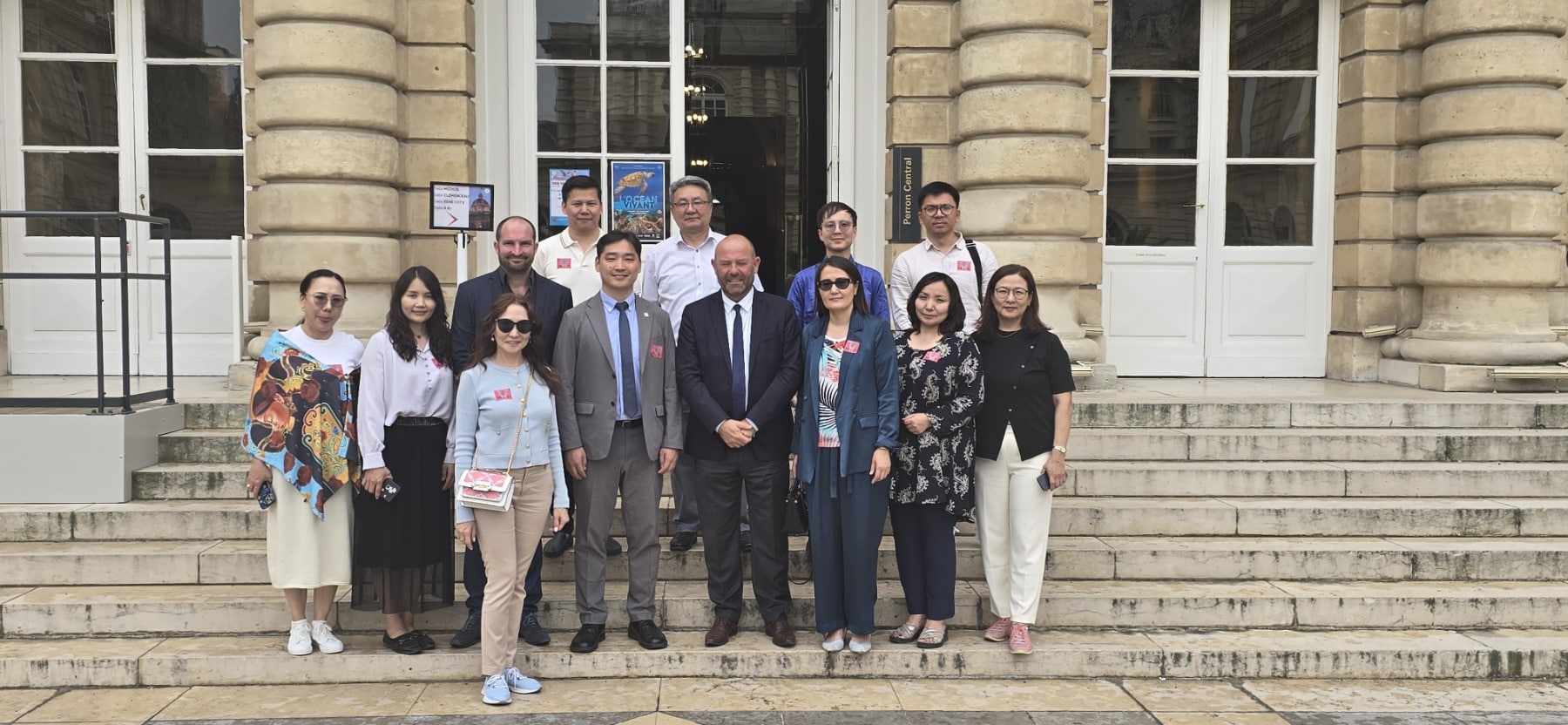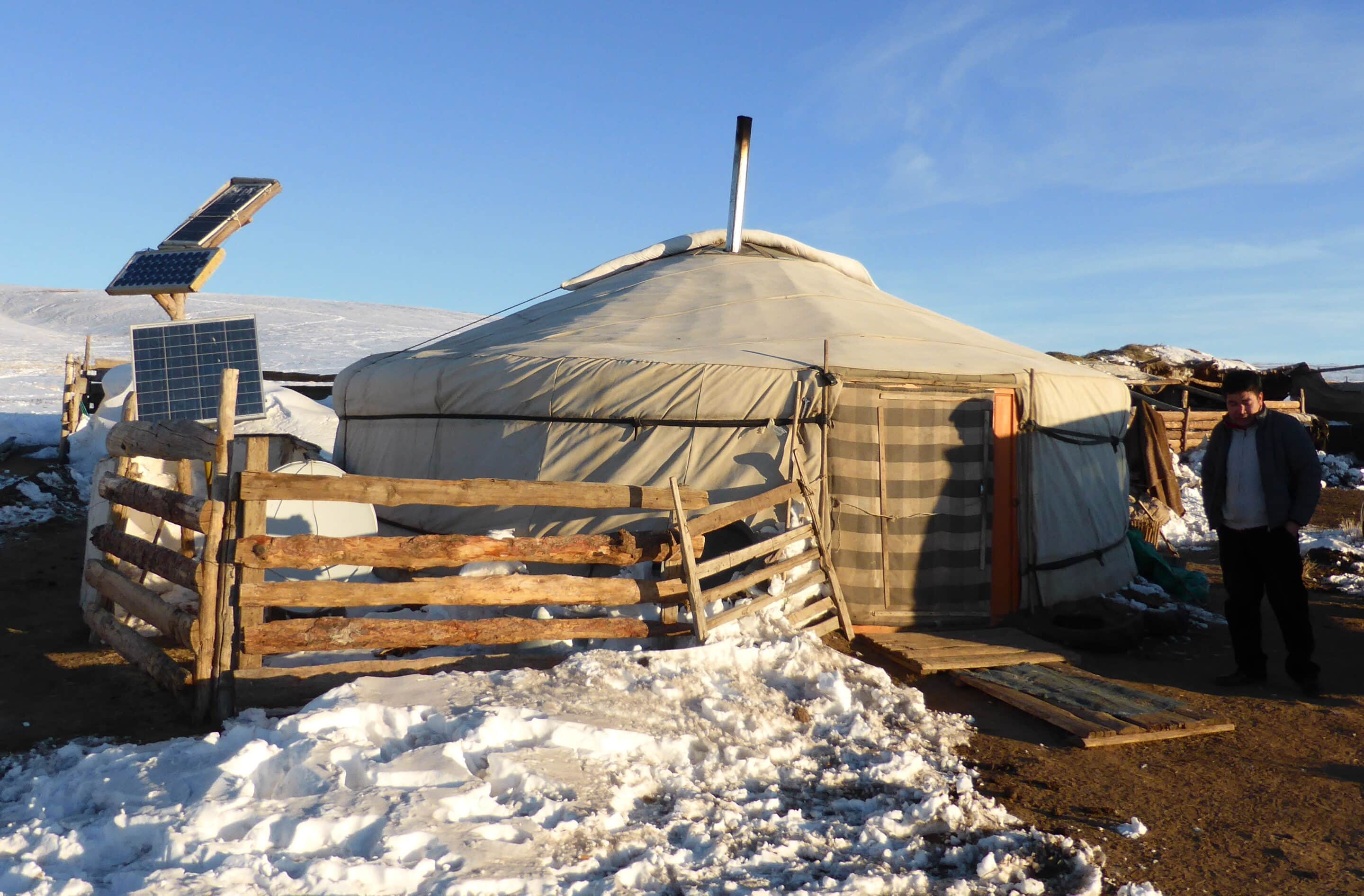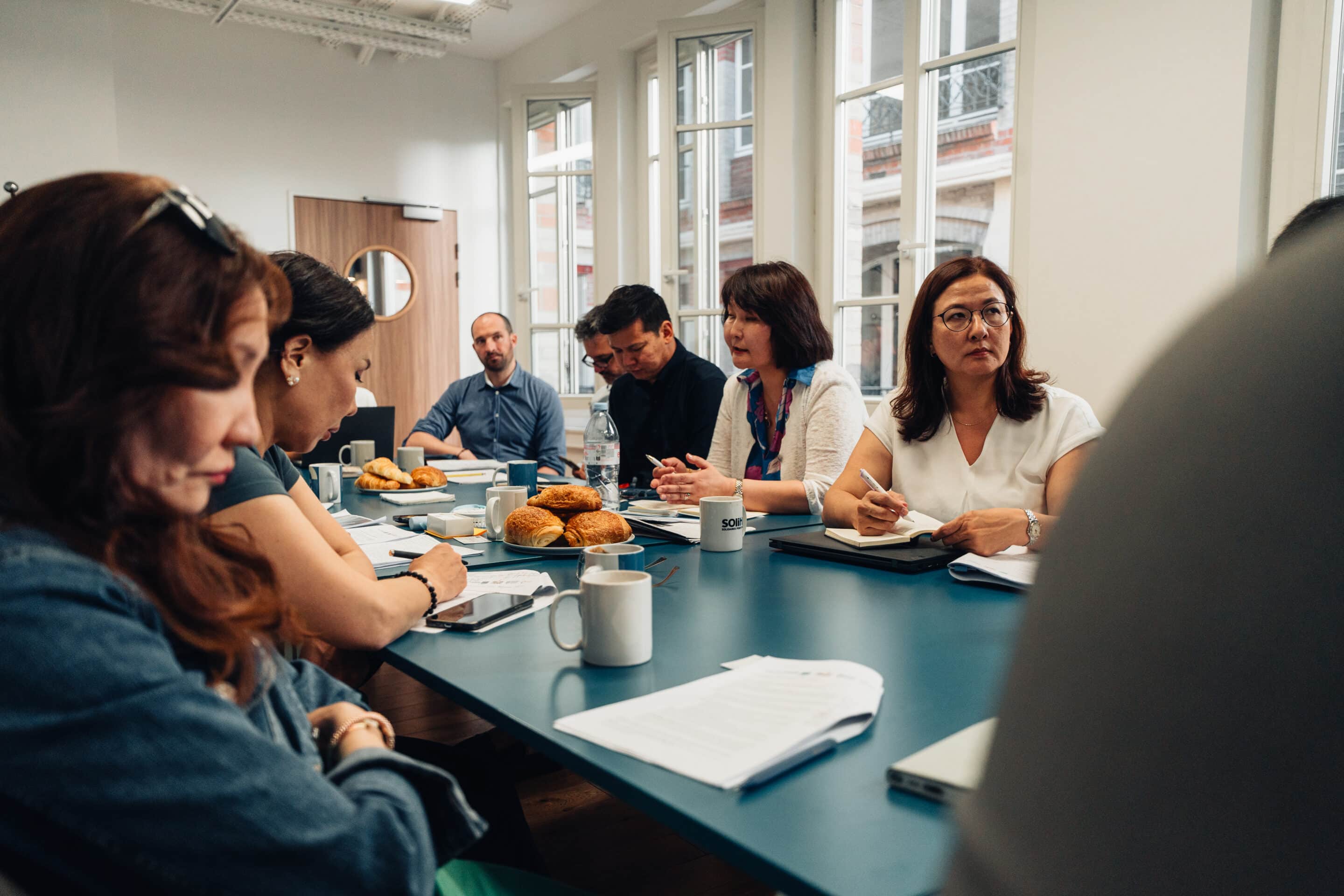Promoting dialogue between stakeholders to support energy renovation in Mongolia
In June 2025, Geres organized a study tour between Mongolia, France, and Belgium to bring stakeholders together around a specific goal: to strengthen the exchange of best practices in energy retrofit, thermal insulation, and sustainable finance in support of Mongolia’s energy transition in the housing sector.
A study tour and two projects; between Mongolia, Belgium, and France
This study tour is part of two projects carried out in Mongolia: the Switch Off Air Pollution 2 (SOAP) project, funded by the European Union’s SWITCH-Asia program, and the FRESH project, supported by the French Development Agency (AFD), developed in Mongolia to reduce air pollution by improving the energy efficiency of single-family homes.
From June 21 to 29, 2025, Geres, alongside its partners, organized a study tour to France and Belgium to share best practices related to the projects carried out in Mongolia (SOAP and FRESH). Our project managers the Mongolian delegation included: a member of parliament, representatives of the municipality of Ulaanbaatar, representatives ofthe Central bank and financial institutions, and the energy regulatory agency.

Site visits, meetings, and learning exchanges enabled participants to gain knowledge about European experiences in energy renovation and their financing models.
The exchanges were particularly fruitful: they addressed the challenges of scaling energy retrofitting initiatives in the housing sector Mongolia and opened up new prospects for international collaboration. The primary objective is to intensify energy renovation in Mongolia, particularly in ger districts (precarious neighborhoods on the outskirts of Mongolian cities), reduce air pollution, and at the same time decrease GHG emissions and improve the thermal comfort and wellbeing of residents.

Exchanging, understanding, and sharing existing European best practices
The study trip began in Paris, where the delegation examined strategies and innovations in energy efficiency in the built environment, green finance, and thermal renovation of housing. In Brussels, the focus was on financial mechanisms, policy frameworks, and housing renovation programs, with visits to exemplary energy retrofitting projects and exchanges with European institutions.
A necessary ecosystemic approach
Experiences in Europe highlight the key role of national housing agencies, local authorities, residents, and housing operators in renovation and energy efficiency, as well as the need for integrated and operational policy frameworks.
Several agencies, networks, and companies participated in this study tour, notably to provide concrete examples of public structures and policies committed to energy renovation: The National Housing Agency (ANAH), which manages renovation subsidies for low-income households, SOLIHA, a long-standing partner of Geres, which provides comprehensive assistance for the renovation of private housing, the social enterprise Ressorts, which is leading the ‘Energiesprong’ project in France, and the Paris Climate Agency, which offers technical advice and financial guidance for renovation projects. For Belgium, the Brussels Housing Company (Société Logement de Bruxelles Capitale) and Comensia welcomed our delegation, demonstrating the importance of long-term planning to transform social housing into modern, energy-efficient buildings.

Inclusive financing, access to information, and proportional incentives: keys to successful renovation programs
Experts reiterated that the success of sustainable renovation programs depends on three complementary levers: inclusive financing mechanisms that enable low- and middle-income households to access renovation services; technical intermediaries capable of providing unbiased information; and proportionate incentives that support both supply (builders, engineers, energy service companies) and demand (households).
Innovative models, such as Energiesprong in France, demonstrate the potential of industrialized solutions—for example, prefabricated insulated facades, integrated solar roofs, and performance guarantees—to achieve net-zero energy housing. While initial costs remain high, standardization and large-scale deployment can significantly reduce them over time.
Finally, the think tank Climact emphasized that subsidies alone are not enough: innovation, the availability of skilled labor, and behavioral change are equally essential. Bankers Without Boundaries, an innovator in green and sustainable finance, highlighted the importance of blended finance solutions involving both public and private actors.
Great opportunities on the horizon for Mongolia
During the visit, the Mongolian delegation presented the urgent problems facing the country: inadequate housing in ger districts, severe winter air pollution, and financial obstacles for households. Discussions with the European Investment Bank (EIB), the European Commission (DG INTPA, SWITCH-Asia) and the French Development Agency (AFD) highlighted potential avenues for cooperation and investment.
The European Commission also presented opportunities that Mongolia could take advantage of to step up housing renovation and sustainable urban development.
Energy renovation relies on synergy between local stakeholders
The study tour demonstrated that successful renovation requires more than subsidies: it relies on a robust ecosystem of policies, financing tools, skills, and innovation from the world of social enterprises and civil society.
In France, ANAH, SOLIHA, APC, social enterprises, AFD, and committed residents are demonstrating how public policy, local actors, and civil society can work together to make renovations affordable and inclusive.
In Belgium, SLRB and Comensia highlight the role of social housing as a lever for equitable and sustainable urban development.
For Mongolia, adapting these approaches offers a clear path to:
- expanding renovation in ger districts and urban housing,
- promoting the emergence of a regulatory and financial framework conducive to energy renovation,
- bridging financing gaps through inclusive tools, and
- establishing strong partnerships with European and international institutions.
Thanks to these exchanges and the mobilization of the study tour participants, Mongolia is positioning itself to accelerate its energy transition, reduce air pollution, and improve quality of life through better insulated housing.
WOULD YOU LIKE TO TAKE ACTION
AND SUPPORT WHAT WE DO?
Tell us who you are and find your means of action.
CITIZENS
Because Climate Solidarity is a challenge we face collectively, Geres gives you the possibility to make a difference.
TAKE ACTION AS A CITIZEN
PRIVATE SECTOR
As a business executive, an employee or a customer, you have the power to take action in your everyday life.
LOCAL AND INSTITUTIONAL ACTORS
Support our actions in France and internationally and become an agent of change at our side.
FOUNDATIONS
By supporting Geres, you contribute to the implementation of innovative and concrete actions.
